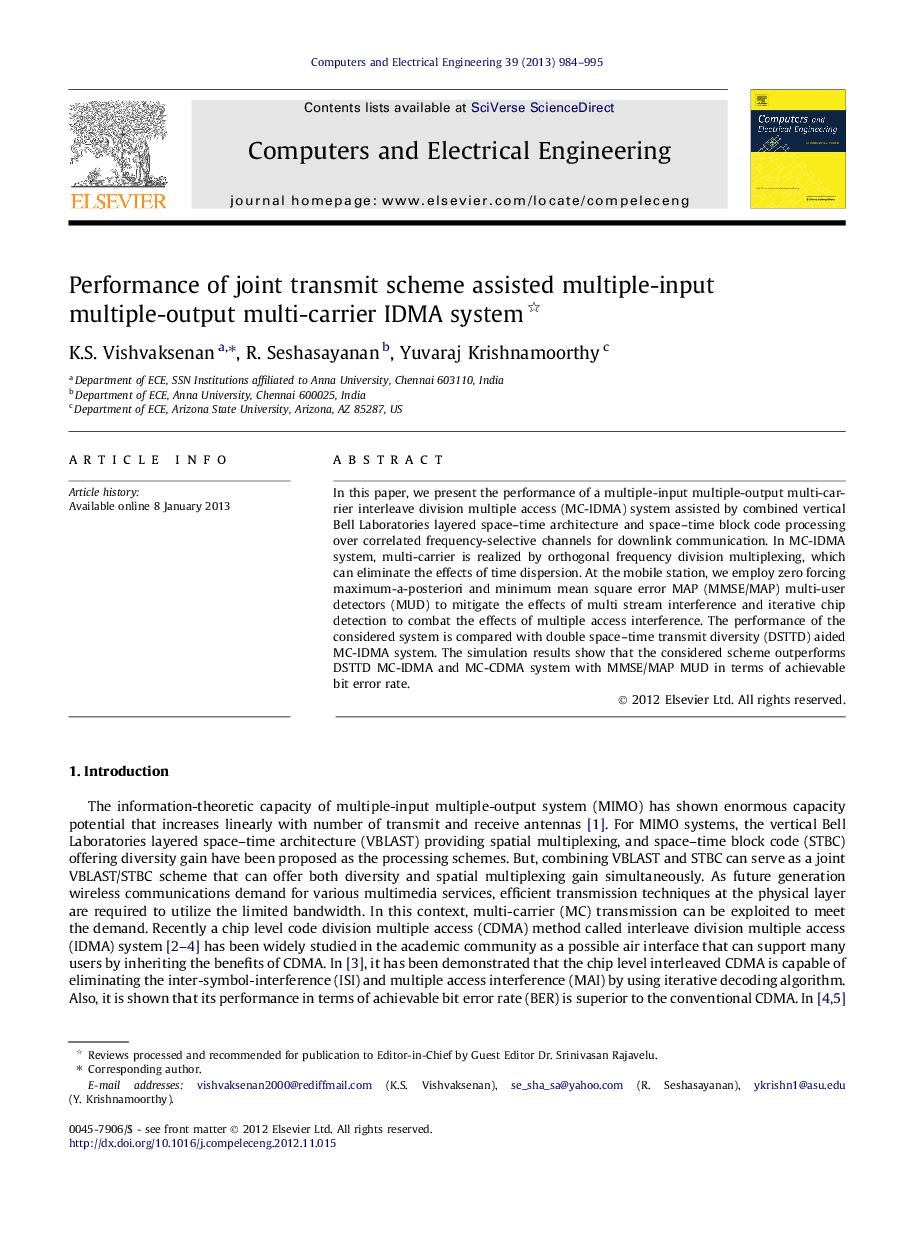| کد مقاله | کد نشریه | سال انتشار | مقاله انگلیسی | نسخه تمام متن |
|---|---|---|---|---|
| 455772 | 695545 | 2013 | 12 صفحه PDF | دانلود رایگان |

In this paper, we present the performance of a multiple-input multiple-output multi-carrier interleave division multiple access (MC-IDMA) system assisted by combined vertical Bell Laboratories layered space–time architecture and space–time block code processing over correlated frequency-selective channels for downlink communication. In MC-IDMA system, multi-carrier is realized by orthogonal frequency division multiplexing, which can eliminate the effects of time dispersion. At the mobile station, we employ zero forcing maximum-a-posteriori and minimum mean square error MAP (MMSE/MAP) multi-user detectors (MUD) to mitigate the effects of multi stream interference and iterative chip detection to combat the effects of multiple access interference. The performance of the considered system is compared with double space–time transmit diversity (DSTTD) aided MC-IDMA system. The simulation results show that the considered scheme outperforms DSTTD MC-IDMA and MC-CDMA system with MMSE/MAP MUD in terms of achievable bit error rate.
Figure optionsDownload as PowerPoint slideHighlights
► We investigate the performance of joint VBLAST/STBC assisted MIMO MC-IDMA DL system.
► Performance is analyzed with MUD when communicating over SUI and LTE channel models.
► BER performance is compared for ZF/MAP OSIC and MMSE/MAP OSIC based MUD.
► Coded MC-IDMA with MMSE/MAP OSIC results in better performance than MC-CDMA system.
Journal: Computers & Electrical Engineering - Volume 39, Issue 3, April 2013, Pages 984–995